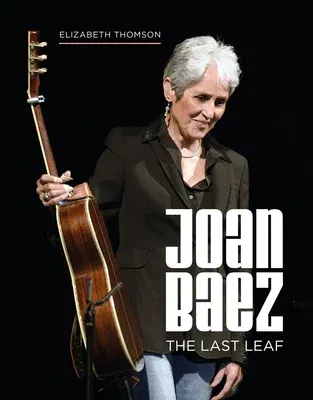Since she appeared unannounced at the 1959 Newport Folk Festival, Joan
Baez has occupied a singular place in popular music. Within three years,
she had recorded three best-selling albums and her voice had been
described 'as lustrous and rich as old gold.' She has mentored
generations of singer-songwriters, including Dar Williams, Josh Ritter,
Grace Stumberg and, most famously, Bob Dylan.
But Joan Baez has always been much more than simply a singer. Even
before she joined Dr Martin Luther King, Jr. on the podium at the March
on Washington for Jobs and Freedom in August 1963, she had used her gift
to bring solace and hope to people who had little of either. In words
and deeds, Baez has consistently championed social justice, nonviolence
the guiding principle of her life, and the causes for which she has
campaigned are legion. Whether playing to integrated audiences in the
American south during the years of segregation, in Latin America during
the years of brutal dictatorships, or Sarajevo under siege, Baez offered
'an act of love, sharing, witness and music.'
Approaching 80, she has stepped down from the stage following a
worldwide farewell tour and a final, Grammy-nominated album. She is now
embarked on a new chapter of life painting.
Drawing on interviews with long-time friends and musical associates, and
on conversations across four decades with Baez herself, Joan Baez: The
Last Leaf is a celebration of a timeless figure whose music and
influence will endure long after her voice is silenced. The Discography
is by Grammy-nominated music historian Arthur Levy.
*Award Winner* 2021 Association for Recorded Sound Collections
Awards for Excellence in the category of Best Historical Research in
Recorded Blues, Folk, or World Music: Joan Baez: The Last Leaf.
Joan Baez is the recipient of the 2020 Woody Guthrie Prize.

